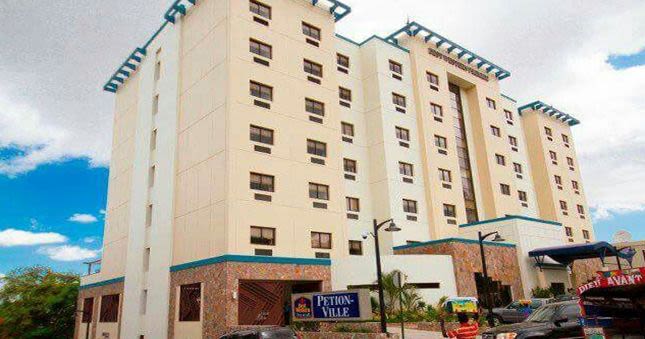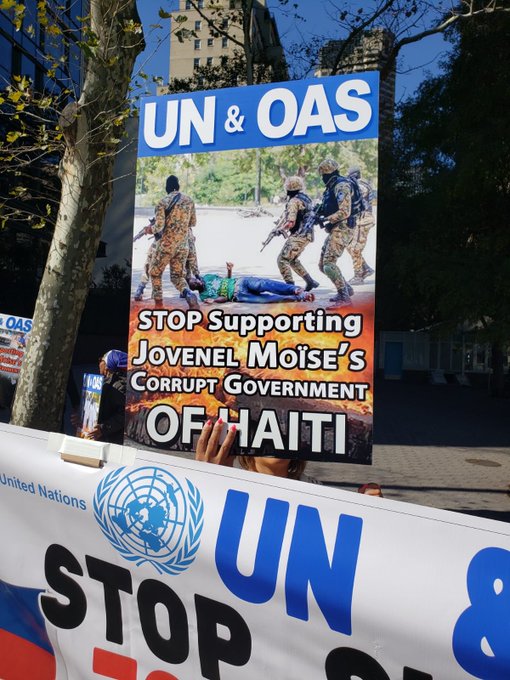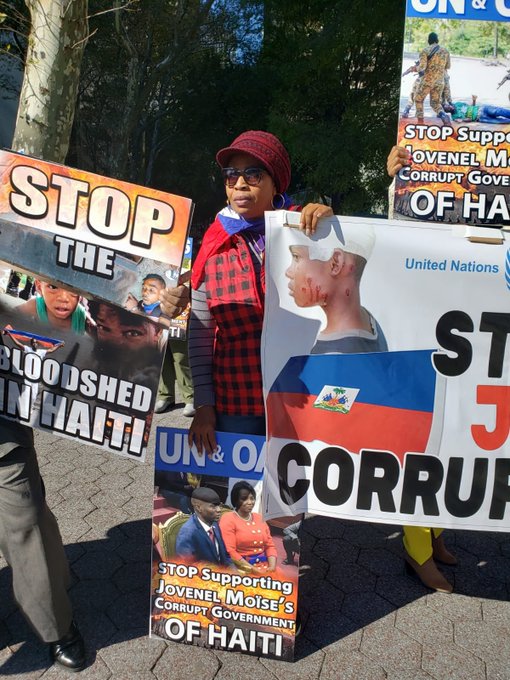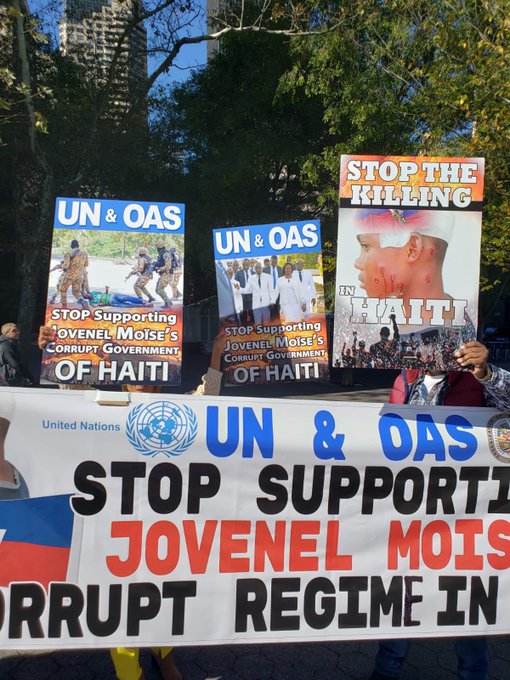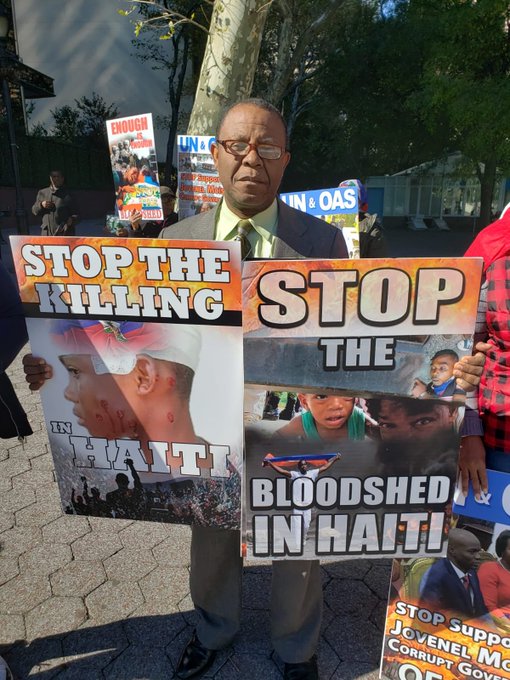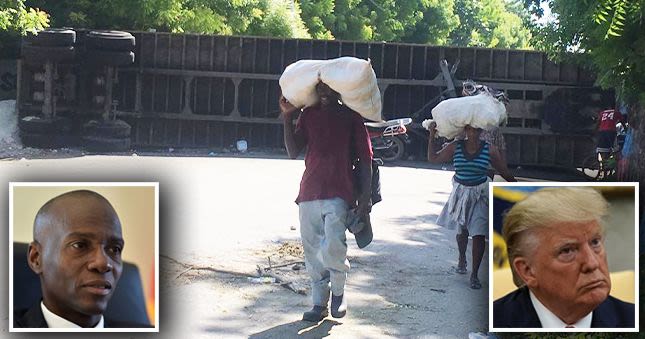loyola llothta
☭☭☭
Pro-Democracy Movement in Haiti Swells Despite Lethal Police Violence
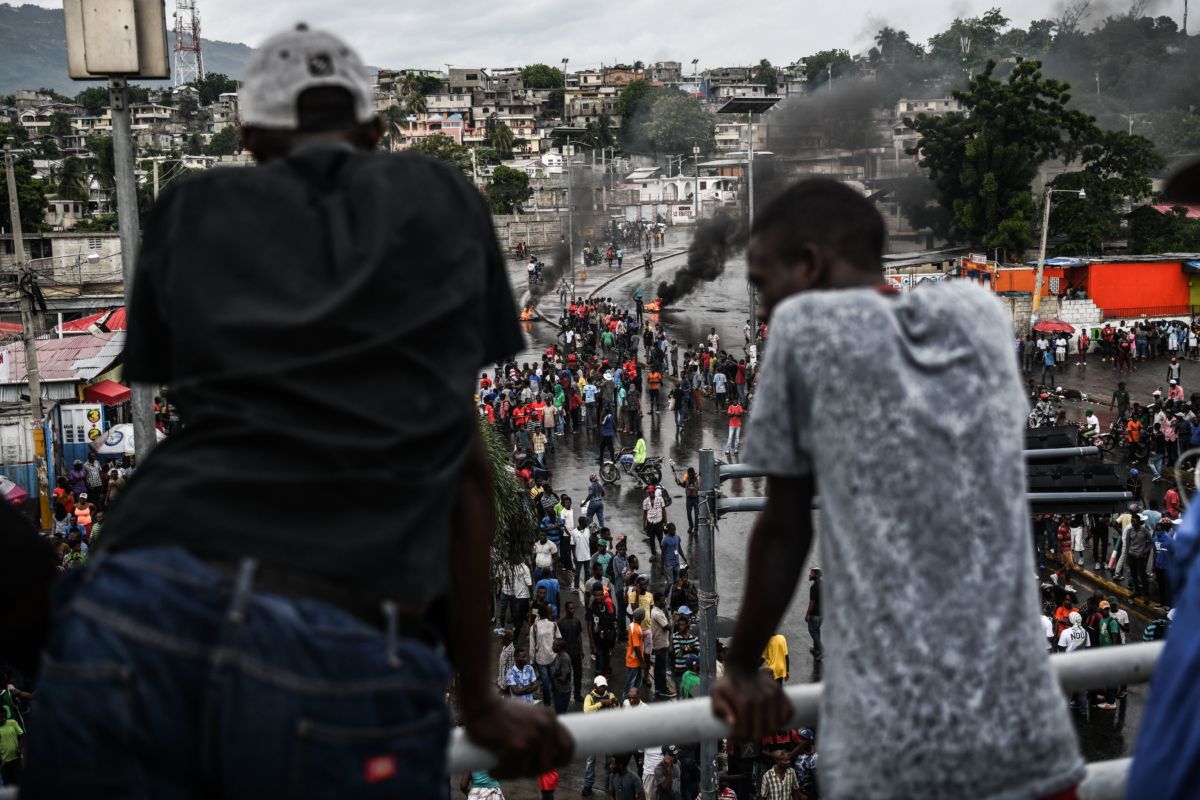
People take part in a protest against fuel shortages and to demand the resignation of President Jovenel Moise, in Port-au-Prince, Haiti, on September 20, 2019.
CHANDAN KHANNA / AFP / GETTY IMAGES
BY
Frances Madeson,
Truthout
PUBLISHED
October 16, 2019
Note: This article has been corrected to clarify that Moise attempted to remove energy subsidies in July 2018.
Link:
Pro-Democracy Movement in Haiti Swells Despite Lethal Police Violence

People take part in a protest against fuel shortages and to demand the resignation of President Jovenel Moise, in Port-au-Prince, Haiti, on September 20, 2019.
CHANDAN KHANNA / AFP / GETTY IMAGES
BY
Frances Madeson,
Truthout
PUBLISHED
October 16, 2019
It's getting hard not to notice that U.S. corporate media is covering pro-democracy protests in Hong Kong far more than pro-democracy forces in the Caribbean. It can be challenging to catch up on significant events in a place that’s a mere two-hour flight from Miami; with a few exceptions, the media is largely failing Haiti right now.
A movement birthed in the shantytowns of Port-au-Prince has now swelled to broad swaths of the populace in all 10 of Haiti’s geographical departments. Friday, October 11, saw a national mobilization of tens of thousands of protesters out in force throughout the country demanding the resignation of President Jovenel Moise — and 10 of them didn’t make it home alive.
Longtime Haiti observer Kevin Pina, editor of Haiti Information Project, told Truthout that protesters were assaulted on October 11 by police armed with guns, tear gas and water cannons, and that seven protesters were reported to be killed by police in Petion-ville, a wealthy enclave in the hills above Port-au-Prince. Three more were killed in Saint-Marc in the western department of Artibonite. Those killed on October 11 included a 16-year-old boy, bringing the documented death toll (all on the side of the protesters) to more than 20.
The Core Group, a political entity formed by dint of United Nations Security Council Resolution in 2004, the same year as the U.S.-backed coup toppled former president Jean-Bertrand Aristide and his Lavalas party from Haiti’s helm. A multi-national supervisory body with the nebulous mission of “steering the electoral process,” its creation was originally proposed as a six-month interim transition support measure, yet it endures to this day.
At issue is the legitimacy of the presidency of Jovenel Moise, who was installed in 2017 to serve a five-year term. Protesters say Haiti cannot wait until 2022 for his departure from office.
Moise stands accused of embezzling millions of dollars from the proceeds of the PetroCaribe energy loan program extended by Venezuela. He earned the ire of many Haitians after attempting to remove energy subsidies in July 2018. The president’s administration has been directly implicated in the massacre of upward of 70 people (some reports say closer to 300) in the Lasalin neighborhood of Port-au-Prince — a four-day torture and killing spree in November 2018.
The massacres took place in the same community that had been demonstrating on a weekly basis since July 2018 in protest of the economic violence of double-digit inflation, currently at approximately 19 percent.
Targeted assassinations are ongoing. On October 10, Haitian journalist Néhémie Joseph, a reporter with Radio Méga and critic of the Moise administration, was found dead in his car with multiple shots to the head, prompting a demand for a swift investigation from the Committee to Protect Journalists.
With continued backing from The Core Group — which is chaired by the Special Representative of the U.N. Secretary-General, and comprised of the Ambassadors to Haiti from Brazil, Canada, France, Germany, Spain, the European Union, the U.S. and the Special Representative of the Organization of American States — Moise clings to power. If he can hold on until January 2020, and parliamentary elections (currently scheduled for October 27) do not take place by then, the parliament will be dissolved and Moise can rule by decree.
Cécile Accilien, director of the Institute of Haitian Studies at the University of Kansas told Truthout the political situation in Haiti is complex.
“We’re ruled by far more powerful countries, the 1 percent, the NGOs — everyone’s playing a game,” she said. “But most of us don’t know what the rules are or who the players are, but we know this: Everyone is playing Haiti.”
Pina noticed how Moise appeared more confident after meeting with Donald Trump in Mar-a-Lago in March 2019.
“Moise’s entire disposition changed after he’d gotten reassurance from Trump that he will back him,” Pina told Truthout. “I assume there was a quid pro quo for Trump supporting him in exchange for doing a 180 on Venezuela.”
“I’ll make a promise to you,” Pence told the assembled leaders. “Stand with us and know we’ll stand with you. Work with us and we will work with you.” Haiti had pointedly not been invited in June 2018 to a confab with U.S. Vice President Mike Pence who was courting nations willing to vote to eject Venezuela from the Organization of American States and to invoke the Rio Treaty (the Inter-American Treaty of Reciprocal Assistance) for the first time since 9/11, potentially clearing the way for U.S. military intervention in Venezuela.
Subsequently, Moise reversed Haiti’s support for Maduro and Venezuelan sovereignty.
“Our response has to be sarcastic,” Vorbe said. “If they think that Moise is so good and great why don’t they give him a job in the U.N. or in Washington? Quick, before he drains the economy completely.”
The hypocrisy of the U.S. attacking Venezuelan President Nicolás Maduro as “illegitimate” while upholding Moise is not lost on Vorbe. Much of what Washington claims about Maduro’s 2018 re-election is verifiably true about Moise’s election in 2016: Yes, there was a record low voter turnout in Venezuela, only 46 percent, but in Haiti it was vastly lower: only 18 percent of the electorate went to the polls. Accusing Maduro’s government of drug trafficking and money laundering reminds Haitians that Moise came into office already accused of laundering millions of dollars. Plus, he was mentored by Guy Phillippe, currently serving nine years in a U.S. prison for those exact crimes.
Note: This article has been corrected to clarify that Moise attempted to remove energy subsidies in July 2018.
Link:
Pro-Democracy Movement in Haiti Swells Despite Lethal Police Violence

